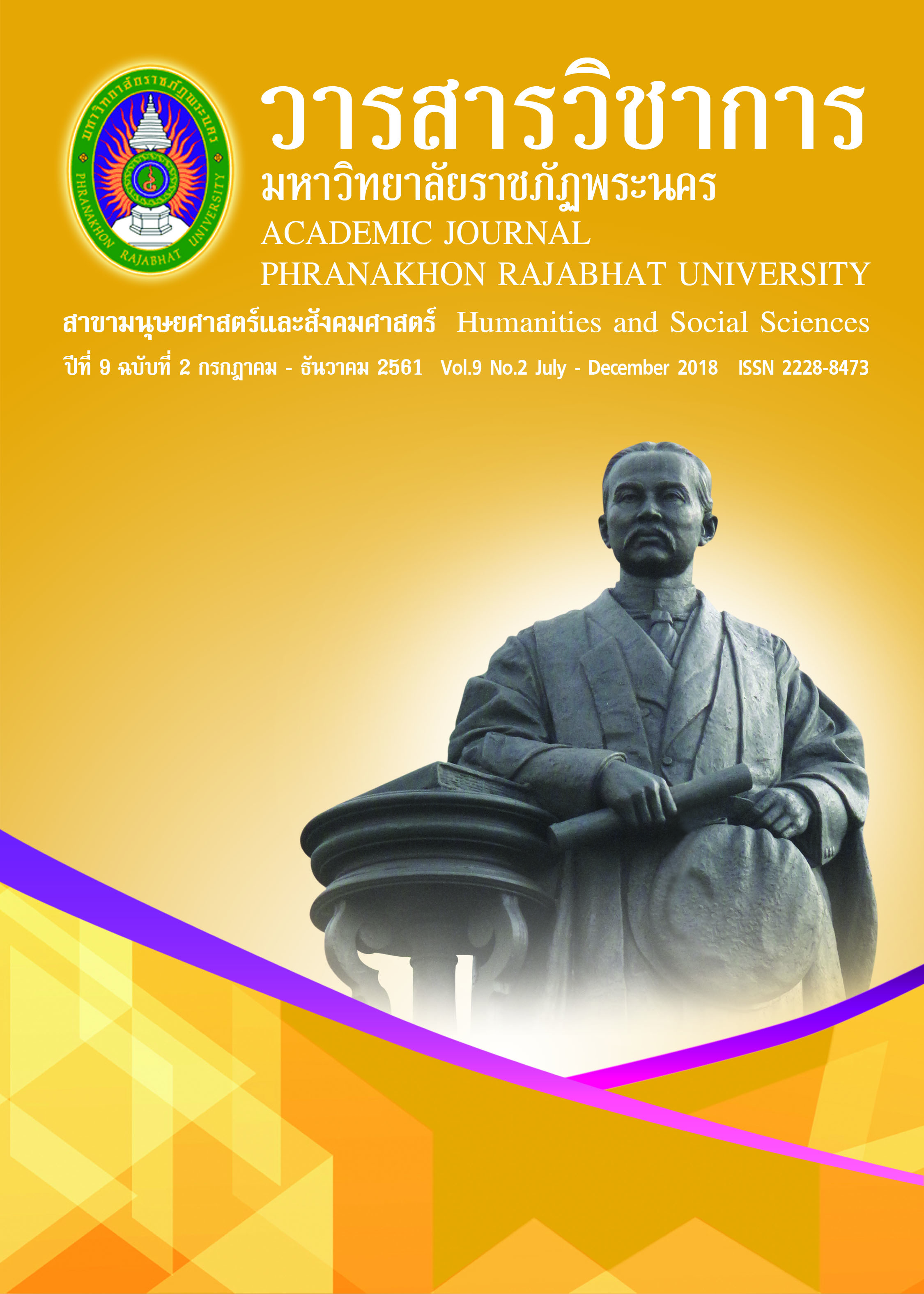THE DEVELOPMENT OF TRAINING PROGRAM AND TEACHING ENGLISH FOR SECOND KEY STAGE TEACHERS IN NAKHON RATCHASIMA
Keywords:
The Curriculum Development, The Training Program, Teaching EnglishAbstract
This research was aimed 1) to obtain the fundamental information to develop a training program on teaching English by Active Learning for the second key stage teachers in Nakhon Ratchasima Province 2) to develop a training program on teaching English by Active Learning for the second key stage teachers in Nakhon Ratchasima Province 3) to implement a training program on teaching English by Active Learning for
the second key stage teachers in Nakhon Ratchasima Province. The research method consisted of 4 steps including 1) studying the fundamental information 2) developing a training program 3) trial of the training program and 4) evaluating the usage of the training program. A group of trainees were 100 English teachers in Nakhon Ratchasima for the second key stage teachers of Primary Educational Service Area Office 2.One
Group Pretest-Posttest Design was used to compare the difference of knowledge, understanding of the program and English teaching scores before and after the training. A questionnaire was used to inquire comment about the training program. Then, the result was analyzed by using average, Standard Deviation, t-test dependent and found that:
1. The training program on teaching English by Active Learning for teachers contained objectives, content, training method, tools and materials, measurement and evaluation. The program content included 1) theoretical concept of the program 2) concept and theory of learning arrangement in the 21st century 3) English learning arrangement by using Active Learning and 4) Lesson plan of English learning arrangement
and example of lesson plan. 2. Before and after the training, the English teachers had different knowledge
and understanding in the English training on teaching English by Active Learning in a significant level of .05, which means having more knowledge and understanding. 3. The training participants felt that the program was appropriate in every aspect and in a high level (X = 4.19) and that they can apply it for improving and developing their teaching to be more effective.
References
Carroll, B. (1974). Learning theory for the classroom teacher. In Jarvis G.A. (ed.). the challenge of communication. Illinois : National Textbook Company.
Good, C.V. (2005). Dictionary 0f Education: (Online). Accessed 15 April 2005. Available from https://www.2/current.html.
Jutamas, P., Benjamas, N., Amnat, R., Boonsin, J., & Tepin, P. (2017). Curriculum Development in English Communication Course for Community-Based Tourism in Chumphon Province. Area Based Development Research Journal, 9(1), 38-51. (in Thai)
Lamie, J.M. (2004). Presenting a model of change. Language Teaching Research, 8 (2), 115-142.
Piangchan P. (2001). The Development of Training Program on Teaching English by Using Integrated Project Work for English Primary School. Bangkok: Srinakharinwirot University. (in Thai)
Saranporn N., (2011). Using English Camp Activities to English Enhance Communicative English Speaking Abilities of Mattayomsuksa 3 Students of Princess Chulabhorn’s College Chonburi. Bangkok : Srinakharinwirot University. (in Thai)
Thongphon, P., Chidchanok, C.,& Kasetchai, L. (2017).Development Guideline for Government Units to Management of English language education in Three Southern Border Provinces. Journal of Education Prince of Songkhla University,
Pattani Campas, 28(3). 25-36. (in Thai)
Taba, H. (1962). Curriculum Development: Theory and Practice. New York: Harcourt Brace and World.
Varunee, A., (2011). Development of an English Communication Curriculum for Non-Academic Personnel of Srinakharinwirot University. Bangkok: Srinakharinwirot University. (in Thai)
Wette, R. (2009). Making the instructional curriculum as an interactive, contextualized process: Case studies of seven ESOL teachers. Language Teaching Research, 13(4), 337-365.
Downloads
Published
How to Cite
Issue
Section
License
"บทความวิชาการในวารสารฉบับนี้ ถือเป็นความรับผิดชอบของผู้เขียนเท่านั้น"
สงวนลิขสิทธิ์ตามพระราชบัญญัติลิขสิทธิ์



